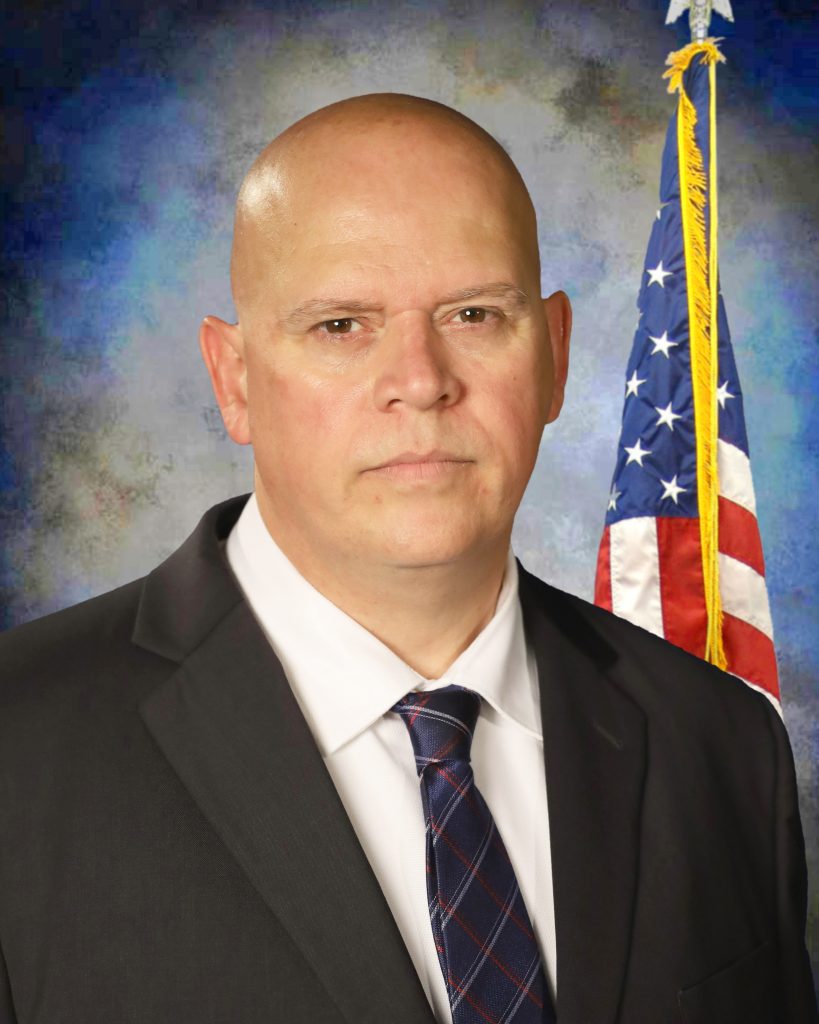California State Prison, Corcoran (CSP‑COR)
Main Phone: (559) 992-8800
Physical Address: 4001 King Avenue, Corcoran, CA 93212 (Directions) Mailing Addresses
- Institution: P. O. Box 8800, Corcoran, CA 93212-8309
- Inmate Mailing Address:
- Facility 3A – P.O. Box 3461, Corcoran, CA 93212
- Facility 3B – P.O. Box 3466, Corcoran, CA 93212
- Facility 3C – P.O. Box 3471, Corcoran, CA 93212
- Facility 4A – P.O. Box 3476, Corcoran, CA 93212
- Facility 4B – P.O. Box 3481, Corcoran, CA 93212
- Facility Z, Minimum Support Facility, Hospital, Firehouse – P.O. Box 3456, Corcoran, CA 93212
Visiting an incarcerated person: learn how to visit an incarcerated person at our institutions.
Other Resources: explore family & friends resources, including how to contact or send packages to those incarcerated in our institutions.
- PIA: Dairy/milk processing, laundry, warehouse, maintenance repair, on time delivery-central valley branch (OTDC).
- Vocational: Computer technology, electronics, machine shop, sheet metal, welding.
- Academic: Adult Basic Education, General Education Development (GED), Pre-Release, English Second Language Development, Literacy Program.
- Other: Community Service Crews, Youth Diversion, Religious, Arts in Corrections, Victim Awareness.
Prison Industry Authority
The Prison Industry Authority administers a work program for inmates in California correctional institutions to improve their job skills and reduce idleness. The program is fully supported by sales of products and services to government agencies.
PIA is composed of the “Century 2000” modular office system manufacturing facilities, an institutional laundry, agribusiness enterprises, a warehouse/freight distribution center, industrial maintenance and repair, in addition to providing Administrative functions to the PIA farm and laundry located at the Wasco State Prison/Reception Center. PIA employs 303 inmates in a private business-like setting throughout CSP-Corcoran.
The “Century 2002” modular office system spans two housing yards (III-B and III-C) and occupies approximately 100,000 square feet of factory floor space. The institutional laundry is operated seven days a week, ten hours per day by rotating crews of Level III inmates. The Warehouse and Distribution Center at Corcoran serves as the central hub of a statewide distribution network. The Agribusiness consists of 400 acres of farmland, a dairy capable of milking 1,800 cows and a milk packaging facility that provides milk for several surrounding institutions.
Medical Services
California Correctional Health Care Services designated COR a “basic care” institution. Basic care institutions maintain a generally healthy patient population with the capability of providing specialty medical services. We maintain 50 licensed beds in our Correctional Treatment Center (CTC), 24 Mental Health Crisis Beds (MHCB), and 14 beds in our Outpatient Housing Unit (OHU). August 16, 2015 COR received national accreditation from the Commission on Accreditation for Corrections. This accreditation program is based on national standards set by the American Correctional Association.
DRP Programs
Integrated Substance Use Disorder Treatment (ISUDT)–Overview
On January 21, 2020, the California Department of Corrections and Rehabilitation (CDCR) and California Correctional Health Care Services (CCHCS) implemented ISUDT. ISUDT is a comprehensive and evidence-based cross-divisional program with pathways to treatment through DRP Cognitive Behavioral Interventions (CBI) programs referred to as:
CBI-Intensive Outpatient (Medical Classification T1, SOMS assignment code ISI) 2-hours/day, 5-days/week, 52-weeks completion
CBI-Outpatient (Medical Classification T2, SOMS assignment code ISO) 2-hours/day, 3-days/week, 14-weeks completion
CBI-Life Skills (Medical Classification T3, SOMS assignment code CB2) 2-hours/day, 3-days/week, 29-weeks completion
All participants will be assessed by medical and referred to one of the CBI classes.
Kings County California is located in the Central San Joaquin Valley and is home to some of the most thriving agricultural industry in the state. California State Prison, Corcoran is also in Kings County. Points of interest include The Hanford Carnegie Museum, Lions Park, and Hidden Valley Park in Hanford. You could do the Majestic Mountain 3 Day Loop visiting Sequoia National Park, Kings Canyon National Park and Yosemite National park. More of California’s scenic locations are within a two hour drive including; the Central Coast in Monterey or the Port San Luis pier, one of the last remaining piers that you can drive on, located in the county of San Luis Obispo.


CSP-Corcoran is a complex, multi-mission institution comprised of the following facilities: Level 1, Level III, Level IV, Administrative Segregation Unit, Security Housing Unit, Protective Housing Unit, General Population, Prison Industry Authority, a fully licensed Correctional Treatment Center, Long Term Restricted Housing and Enhanced Program Facility.
Level I – General Population
Total capacity of Level I inmates is 728. Approximately 95% of these inmates are assigned permanent jobs. The jobs performed include Community Work Crews, Administration Building Porters, Maintenance, PIA Warehouse, Fire House, Garage, Grounds Yard Crews, PIA Corp Farm and PIA Dairy.
The Minimum Support Facility (MSF) Level I Non-designated Program Facility (Inmates who do not identify as Sensitive Needs Yard or General Population) at CSP-Corcoran consists of five buildings; four are dormitories housing up to 192 inmates each, and two D&E-dormitory housing 200 inmates. The complex has a culinary and dining hall, its own recreation facilities, library, chapel, and visiting room. As of October 14, 2009, the Department deactivated the Substance Abuse Program (SAP) located within the Level I Facility.
Level III – General Population
Facility 3A is designated to house inmates with a classification score of 36-59. The physical design of the housing units is a 270° design.
Facility 3A has five buildings, four of which house general population inmates, with a total combined bed capacity of 800 inmates. 3A is designated as a Sensitive Needs Yard. Current programs on this facility include the Orientation Unit, inmate participants in the Mental Health Services Delivery System (MHSDS) at the Enhanced Outpatient Program (EOP) and Correctional Clinical Case Management System (CCCMS) level of care.
Facility 3A is also designated for inmates with Mobility Impairments Not Impacting Placement (DNM) Hearing Impairments Not Impacting Placement (DNH) and Disability Requiring Relatively Level Terrain Impacting Placement (DLT).
On October 2009, the Administrative Segregation Unit (ASU) EOP was relocated to 3A04 with a total combined bed capacity of 100 inmates, On July 1, 2019; the ASU EOP was relocated to building 3A03. Current programs in this facility include ASU, EOP, basic Education ABE I, ABE II and ABE II, GED, college, and voluntary self-help programs are available for the inmates.
On September 18, 2017, Facility 3A Building 3 converted to a Level III non-designated EOP program to assist the Department by increasing Level III EOP non-designated housing, which is necessary based on the continued growth of the mental health population. On July 1, 2019, the EOP non-designated building was moved to 3A04. In addition, it will facilitate enhanced clustering of the EOP population and provide greater access for out of level inmates pending transfer to lower level housing.
Level IV – General Population
Facility III-B houses inmates with a classification score of 60 and above. Each housing unit is a 270º design facility. Facility III-B has five buildings, one is designated EOP and four are designated CCCMS GP Mental health buildings, with the bed capacity for 1,121 inmates.
Facility III-B – 3B01 is assigned a Non Designated Housing Unit. The remaining housing units are as a Sensitive Needs Yard. Current programs in this facility include Orientation Unit, inmate participants in the Mental Health Services Delivery System (MHSDS) at the Enhanced Outpatient Program (EOP) and Correctional Clinical Case Management System (CCCMS) level of care. Facility III-B is also designated for inmates with Mobility Impairments Not Impacting Placement (DNM) Hearing Impairments Not Impacting Placement (DNH) and Disability Requiring Relatively Level Terrain Impacting Placement (DLT). Facility III-B&C also have educational programs from basic educational, GED, college, and voluntary self-help programs are available for the inmates.
Facility III-C houses inmates with a classification score of 60 and above. The design of the individual housing unit is a 270º design facility.
Facility III-C has five buildings with a total combined bed capacity of 1,080 inmates. III-C is designated as a General Population facility.
Administrative Segregation Unit
The Administrative Segregation Unit (ASU) was activated on June 2, 2003. It includes programming space to facilitate custodial and operational needs and also complies with court mandated and regulated activities such as exercise and on-site medical/mental health delivery systems. The ASU building consists of eight housing sections in a single story design, an elevated central control room, and administrative, program and service space within the building. Six of the sections contain 12 cells and 2 contain 14 cells. All sections contain showers, holding cells and adjacent exercise yard modules. Exercise yards are intended to accommodate one or two inmates (from the same cell) with supervision provided by a Correctional Officer, supplemented by closed-circuit television surveillance. ASU also provides educational programs from basic educational, GED, college, and voluntary self-help programs are available for the inmates.
Facility 4A and 4B Security Housing Units
Facilities 4A and 4B Housing units are maximum security 180º design facilities and provides for a variety of special housing programs including Security Housing Unit (SHU), Administrative Segregation Unit (ASU), Debrief Processing Unit (DPU) and Long Term Restricted Housing (LTRH). Inmates whose conduct endangers the safety of others or the security of the institution are housed in SHU, ASU or LTRH depending on their individual case factors. In most cases, these inmates have committed serious rules violations while housed in a general population setting.
Within the SHU housing facilities, is a specially designated unit: The Medical/Handicap SHU unit which meets the requirements of the Americans with Disabilities Act (ADA). It offers maximum security housing with necessary adaptations to the cells and showers for accessibility.
Facility 4A has a bed capacity for 1,024 inmates. The facility currently houses inmates who require protective housing within the Protective Housing Unit (PHU). Facility 4A has a Debriefing Processing Unit (DPU) for validated prison gang associates/members wishing to disassociate themselves from criminal gang activity. Long Term Restricted Housing (LTRH). Inmates whose conduct endangers the safety of others or the security of the institution are housed in SHU, ASU or LTRH depending on their individual case factors. In most cases, these inmates have committed serious rules violations while housed in a general population setting. Facility 4A also houses General Population Inmates, Disability Placement Program (DPP) Inmates requiring the use of wheelchairs within the cells, and Inmates participating in the Developmental Disabled Program (DDP).
Facility 4B has four buildings with a bed capacity for 1,024 inmates. Currently Facility 4B is operating with Currently Facility 4B is operating with 1 activate buildings, 4B4R, which is a designated MSF pipeline.
Facility 4A&4B also have educational programs available for the inmates from basic education, GED, college, and voluntary self-help programs.
Prison Industry Authority
CALPIA is a self-supporting, customer-focused business that reduces recidivism, increases prison safety, and enhances public safety by providing offenders productive work and training opportunities.
CALPIA at CSP Corcoran, CSATF and Wasco Farm employs roughly 275 offenders in multiple industries. These industries include Dairy, Farm, Milk Processing, Food and Beverage Packaging, Laundry, Healthcare Facility Maintenance, General Facility Maintenance and Repair, Warehouse, and Maintenance and Repair.
Inmates are offered the opportunity to enhance their ability to find meaningful jobs upon their release by participating in the Industrial Employment Program (IEP). Offenders, who work in Food Packaging and in the Dairy and Milk Processing Plant, are also offered the opportunity to earn ServSafe Employee Guide/Food Handler Certificate, which is issued by the National Restaurant Association. Inmates working in the Milk Processing Plant can also be certified by the United State Department of Food and Agriculture with both a Pasteurizers License and Limited Weighed/Sampler License.
The dairy milks approximately 800 cows, producing 6000 gallons of milk per day. This milk is packaged in the Milk Processing Plant, which is shipped to approximately 32 state agencies. The farm at Corcoran and Wasco grow alfalfa, corn silage and winter forages to feed the dairy herd. Food and Beverage Packaging in Corcoran and CSATF provide packaged breads, hoagies, buns, cookies, peanut butter, jelly, syrup, almonds and boxed lunches. Corcoran’s Laundry facility processes laundry for both Corcoran and CSATF, as well as serving as a back up for multiple other facilities. In addition, the Laundry utilizes approximately 70-75% recycled water. Healthcare Facility Maintenance is responsible for maintaining a Title 22 cleaning standard for the Institution’s medical areas. General Facility Maintenance and Repair not only teaches valuable building maintenance and repair skills to the offenders, but also assists Plant Operations with completing their work orders. The Warehouse offers offenders a chance to learn both clerical skills, but also how to operate various types of industrial trucks (forklifts).
Medical Services
California Correctional Health Care Services designated COR a “basic care” institution. Basic care institutions maintain a generally healthy patient population with the capability of providing specialty medical services. We maintain 50 licensed beds in our Correctional Treatment Center (CTC), 24 Mental Health Crisis Beds (MHCB), and 14 beds in our Outpatient Housing Unit (OHU). August 16, 2015 COR received national accreditation from the Commission on Accreditation for Corrections. This accreditation program is based on national standards set by the American Correctional Association.

Edward J. Silva was assigned as acting Warden of California State Prison-Corcoran (COR) in March 2025.
Mr. Silva began his career with the California Department of Corrections and Rehabilitation (CDCR) in October 1999, when he attended the CDCR Basic Correctional Officer Academy in Galt, California.
After graduating, Mr. Silva reported to Avenal State Prison in December 1999.
In February 2006, he promoted to Correctional Sergeant at North Kern State Prison. In April 2011, he promoted to Correctional Lieutenant at COR. He then promoted to Correctional Captain at California Substance Abuse Treatment Facility and State Prison at Corcoran in January 2017. In April 2020, he promoted to COR as a Correctional Administrator and promoted to Chief Deputy Warden in June 2023.
Edward H. Martin II began his career with CDCR in 2025, bringing over two decades of experience in healthcare administration across domestic and international settings.

Prior to his transition to California correctional healthcare, Martin served as the Administrative Director of Operations and Site Administrator at Adventist Health in Tehachapi Valley. His responsibilities included overseeing daily operations and representing the hospital within the community. He formerly held the position of Operations Project Manager at SAC Health System, managing grant funding and chairing both the Special Projects and Research Committee as well as the Grants Management Committee.
His international experience includes a decade-long tenure as Chief Executive Officer at Haiti Adventist Hospital, and Malamulo Hospital in Malawi. Additionally, as Executive Director of Adventist Health International, he oversaw the governance of 15 healthcare institutions and served as the sole contracted civilian healthcare provider for the Zambian Prison Service, delivering eye and dental care across the country’s prisons.
Martin holds a Master of Health Administration from Loma Linda University and a Bachelor of Science in Biology Education from Oakwood University. In 2018, he completed an Administrative Fellowship at Loma Linda University Health.
Martin accepted the Chief Executive Officer assignment at Corcoran State Prison in April 2025.
Local Inmate Family Councils (IFC’s) are a gathering of family and friends of the incarcerated who meet regularly with Wardens to support visiting since keeping strong family connections with loved ones is a powerful rehabilitative tool. These IFC’s promote visiting by clarifying rules and regulations as well as discussing health, education, vocational training, packages, books, and related issues. For more information on connecting with a local IFC, please visit the Statewide IFC website.